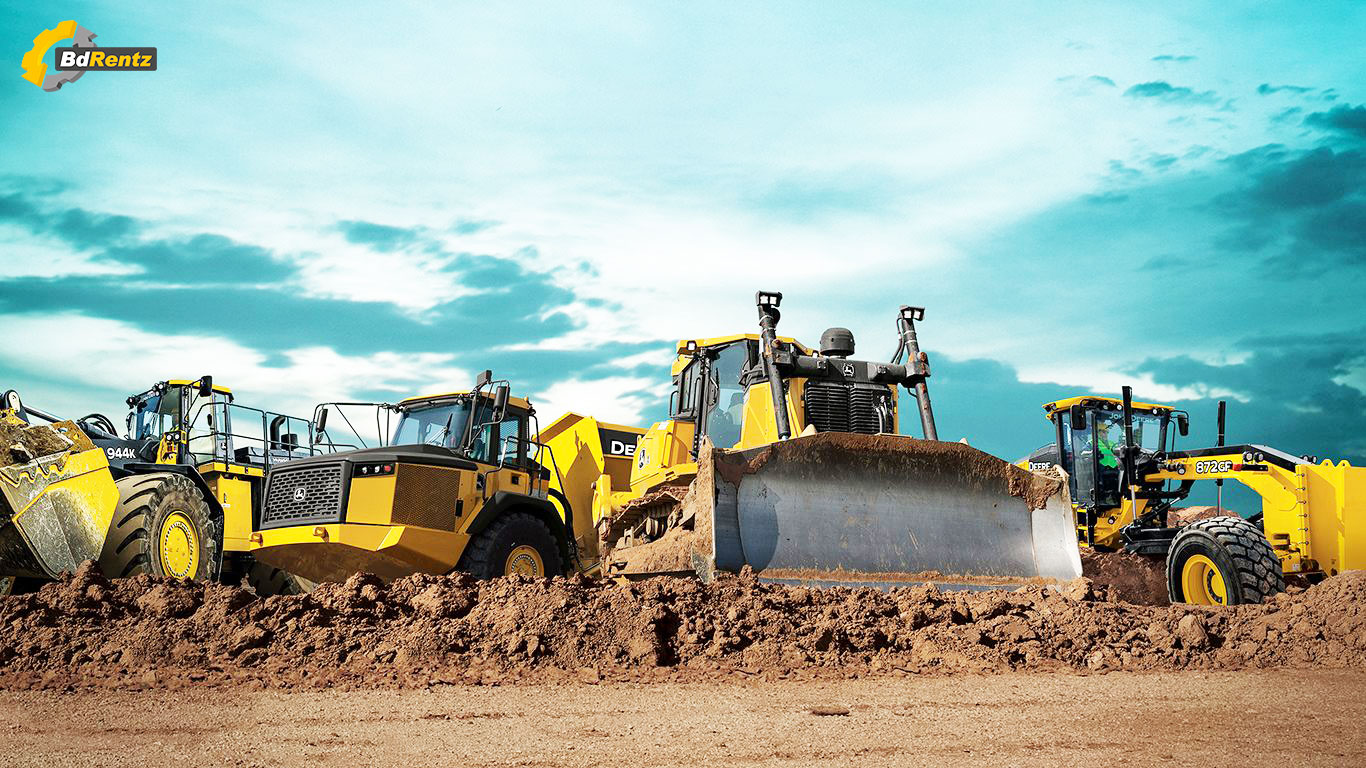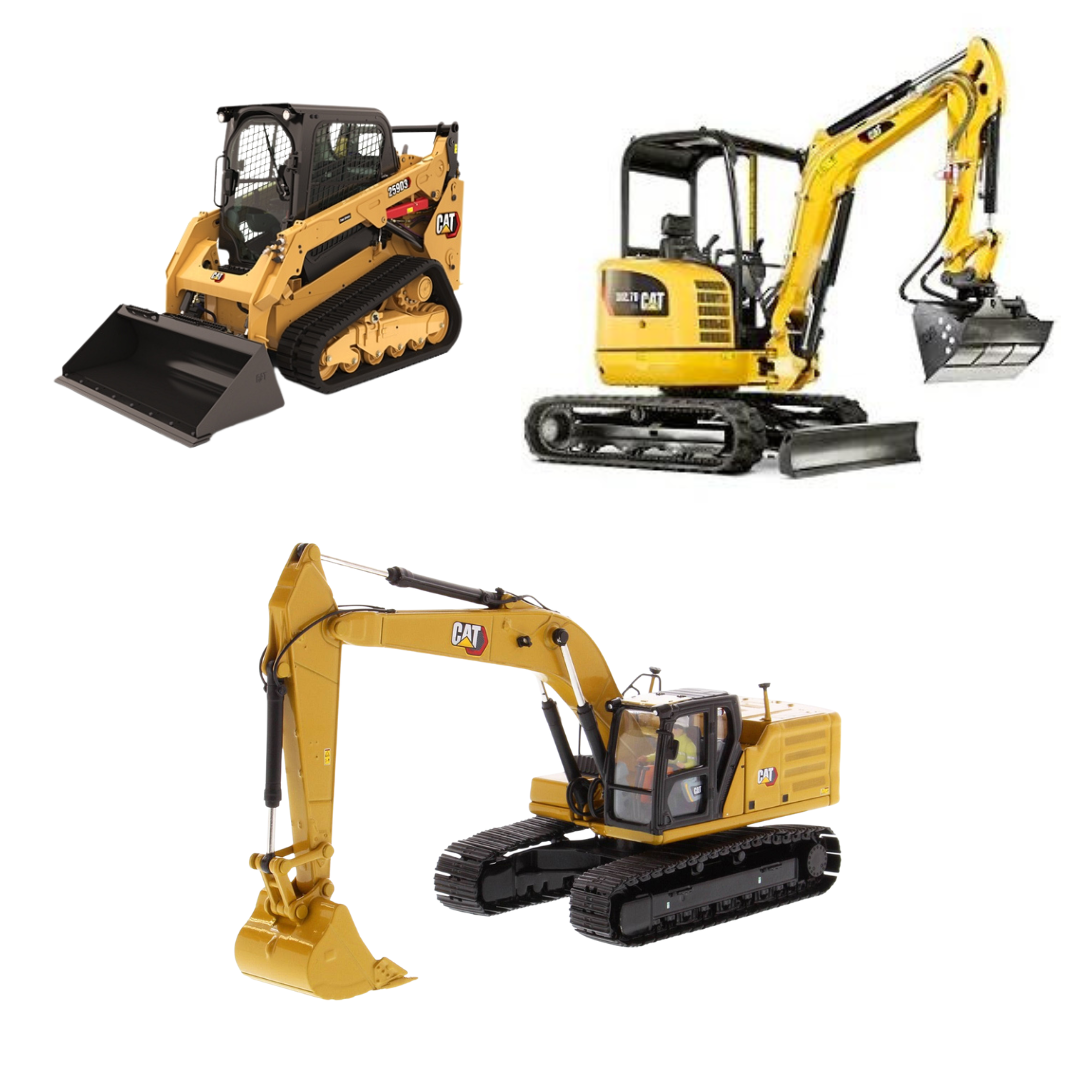Construction Equipment Rentals: Heavy Duty Machinery for Your Projects
Construction Equipment Rentals: Heavy Duty Machinery for Your Projects
Blog Article
Optimize Your Spending Plan by Comprehending the Costs Associated With Building Devices Rentals
Recognizing the full range of costs connected with building and construction equipment leasings is vital for maximizing your budget plan. What approaches can be employed to successfully take care of these costs and make sure an extra efficient rental experience?
Review of Rental Expenses
When considering building and construction devices rentals, recognizing the connected costs is vital for efficient budgeting and task planning. Rental prices can vary significantly based upon several variables, including tools type, period of rental, and area. The initial rental cost typically mirrors the devices's market need and its associated functional capabilities, influencing the total cost.
In enhancement to the base rental rate, secondary costs may arise, such as transportation costs, fuel additional charges, and upkeep charges. It is vital to represent these added expenses to precisely analyze the total expense of renting out equipment. In addition, the rental period can affect rates; longer rentals may certify for affordable rates, while short-term leasings could incur higher everyday fees.

Breakdown of Rental Rates
A comprehensive understanding of rental rates is important for professionals and project managers intending to maximize their spending plans. Rental prices for building devices usually contain several components, consisting of base prices, time-based fees, and usage fees.
Base prices are the core costs connected with the leasing of the devices, frequently determined by the kind and dimension of the machinery. These rates can differ substantially, influenced by elements such as tools need, accessibility, and regional market fads. Time-based fees, which may be daily, weekly, or monthly, offer to fit different task timelines and rental periods.
Additionally, rental prices may consist of use fees, which are appropriate when equipment is made use of beyond a defined limit, guaranteeing that the rental firm can represent wear and tear. Seasonal need changes can also influence rental rates, with peak construction periods generally regulating higher rates.
Furthermore, understanding the rental business's plans concerning upkeep and insurance coverage can provide additional insight into the overall expense structure. By examining these parts, specialists can make informed decisions, making certain the selection of rental tools aligns with both job needs and budget restraints.
Additional Fees to Think About
Recognizing the details of additional fees is important for service providers to handle their total rental expenses efficiently. Beyond the conventional rental prices, numerous auxiliary charges can considerably affect the overall expense of devices leasing. These charges typically include shipment and pickup fees, which can vary based on distance and logistics associated with transferring the equipment to and from the work site.
Moreover, some rental companies might enforce gas additional charges if the devices is returned with less fuel than when rented. It is also important to be aware of possible cleansing charges, especially for specific equipment that requires thorough upkeep after usage.

Extensively evaluating the rental agreement and making clear these extra fees ahead of time can aid professionals avoid unanticipated expenses and ensure that budget plans continue to be intact throughout the project lifecycle.
Repair And Maintenance Expenditures
Routine repair and maintenance expenses are often ignored elements that can significantly influence the total expense of building and construction devices rentals. When leasing equipment, it is vital to consider not just the rental costs however additionally the potential prices connected pt backhoe with maintaining the equipment in optimum operating condition.
Lots of rental firms include fundamental upkeep as part of the rental contract; nonetheless, more unexpected pop over here break downs or considerable repairs can result in added expenditures. It's necessary to examine the rental agreement carefully to comprehend what maintenance solutions are covered and what duties drop on the renter.
Additionally, devices that is not properly maintained can bring about inefficiencies on duty site, potentially triggering hold-ups and raising task prices. To mitigate these threats, it is recommended to perform normal examinations and preserve open communication with the rental provider regarding any issues that arise during use.
Insurance and Liability Prices
Insurance policy and responsibility prices are essential parts that can dramatically influence the general cost of building equipment services (boom lift rental). These costs make certain that both the rental business and the client are protected from possible monetary losses occurring from accidents, damages, or burglary during the rental duration

In addition, clients must know any kind of deductibles or exclusions in the insurance plan, as these can impact potential out-of-pocket costs. Recognizing the conditions of any kind of insurance protection is vital to prevent unanticipated costs. Inevitably, budgeting for insurance and obligation expenditures can help make sure a smoother rental experience and protect against monetary threats associated with building jobs.
Final Thought
In final thought, a detailed understanding of the expenses connected with construction equipment services is essential for reliable spending plan administration. Eventually, informed decision-making regarding tools services contributes to the overall success of construction undertakings.
Rental expenses can vary significantly based on numerous aspects, including equipment kind, duration of rental, and area (construction equipment rentals). The rental period can influence prices; longer services might qualify for affordable rates, while temporary leasings might sustain higher day-to-day fees
By conducting detailed research study and engaging with reputable rental business, professionals can properly navigate the intricacies of rental pricing, inevitably maximizing their economic resources.
Past the basic rental prices, various supplemental costs can significantly impact the total expense of tools rental. Rental firms frequently give liability insurance policy that covers injuries to third celebrations or damages to residential or commercial property, while tools damage insurance coverage can cover the price of repairs or substitute if the rented out equipment is damaged.
Report this page